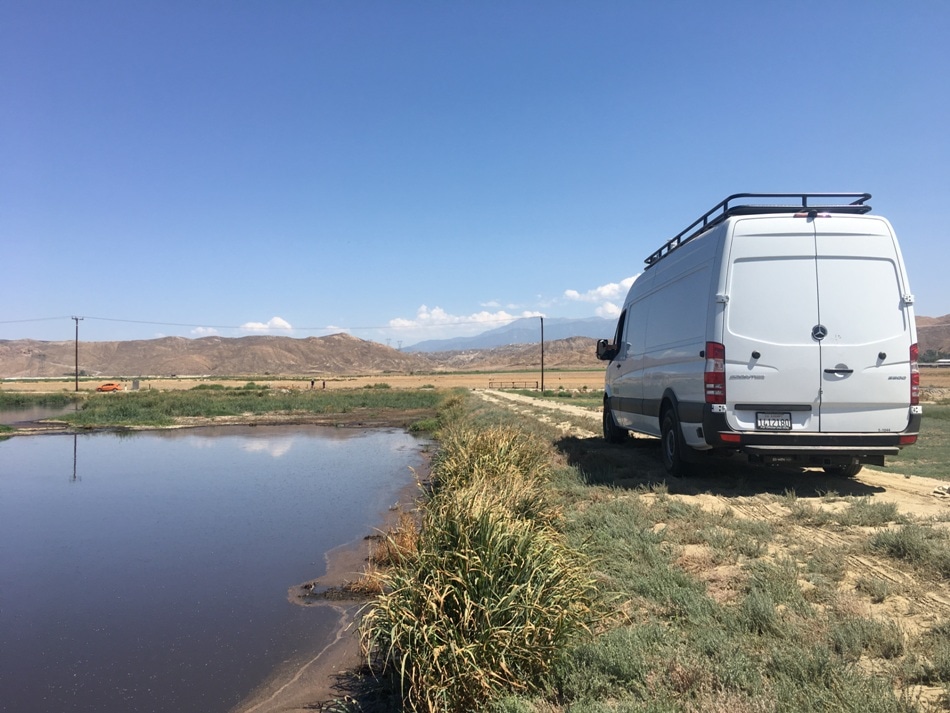Sep 7 2018
Two UC Riverside professors are driving around California in order to pinpoint sources of air pollution. They will be driving the university’s new Mobile Isotope Laboratory, a Mercedes Benz transport van equipped with a collection of tools capable of measuring the flux of greenhouse gases in the environment in real time.
 UCR’s mobile emissions lab on location at a dairy manure lagoon in Southern California.
UCR’s mobile emissions lab on location at a dairy manure lagoon in Southern California.
The researchers leading the project are Francesca Hopkins, an assistant professor of climate science and sustainability in the Department of Environmental Sciences, and Marilyn Fogel, the Wilbur H. Mayhew Endowed Professor of Geo-Ecology in the Department of Earth Sciences.
The scientists will be able to measure the amount of methane, water vapor, carbon dioxide, ethane, and nitrous oxide in the atmosphere by pumping the surrounding air into the laser-based sensor system. They can also identify the naturally occurring stable isotopes of separate elements—carbon, oxygen, and nitrogen - in the gases, which enables them to establish where the emissions originated and whether they came from natural processes or human activities.
The van is fitted with a diesel generator and an inverter, which power the laser-based machines and air conditioning necessary to work in remote locations such as UC’s Natural Reserve System sites.
By analyzing air samples in real time while the vehicle is in motion, we can identify pollution hotspots and further study them to learn the sources and concentrations of the emissions. The instruments in the mobile lab will enable us to take a comprehensive look at current greenhouse gas emissions across California, which will provide a baseline that the state can use as it works to reduce air pollution caused by transportation, agriculture, and industry.
Marilyn Fogel, Director of UCR’s Environmental Dynamics and GeoEcology (EDGE) Institute
After the mobile lab was launched earlier this month, scientists have conducted emissions testing at dairies in Southern California. Next, they plan to use it in Boyd Deep Canyon and at the Salton Sea this fall.
Valerie Carranza, a graduate student in Hopkins’ research group, said the mobile laboratory makes data collection a lot easier. “Before we had access to the mobile lab, it was challenging to make these kinds of measurements in the field because the laser instruments require power and cooling,” Carranza said. “The mobile lab has vastly increased the number of locations we can visit and the amount of measurements we can make.”
Francesca Hopkins, chief investigator of a Lab Fees grant from the University of California Office of the President, and her group have been trying out the mobile van this summer and have a tight schedule for fall. Darrel Jenerette, professor of landscape ecology, and Peter Homyak assistant professor of environmental sciences, hope to use the mobile lab to embark on their National Science Foundation-funded project on “hot” agriculture in the Imperial Valley, where temperatures can climb to 110 °F.
The community can do a tour of the mobile lab and learn how the instruments work from 4-6 p.m. on September 6th at the Geology Building Courtyard. The tour will be hosted by members of the research team and Isaac Lino, a junior specialist engineer who put together the lab.